Target is a US mass-market discount store. In a crowded market, it is eager to grow its business online. But two massive data breach incidents affected over 100 million of its customers and weakened its sales significantly. In order to keep its market share on par with competitors such as Walmart and Amazon, Target clearly has challenges to meet.
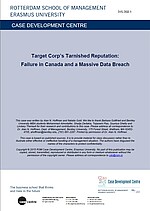
As the Dutch powdered food supplements producer Queal grows, its production capacity becomes too small to cope with the increasing demand. Queal has to decide whether to outsource production but bear high risk, low profit margins and reduced autonomy, or to produce in-house, which requires significant capital investments they do not have.
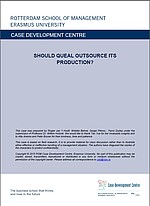
Sonic is an iconic American drive-in fast-food chain with thousands of franchise establishments across the US. As Sonic continues to expand, it enters urban environments where space is too scarce to make its drive-in model possible. At the same time, the drive-in does not have the same emotional appeal to international consumers.
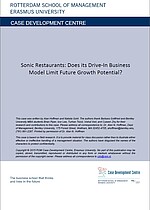

For two years Facebook has seen a decline of user growth rate in its domestic US market, creating anxiety regarding revenue growth and the growth of the company itself, as Facebook is heavily reliant on advertising. Facebook has to expand its revenue sources and methods both by increasing advertising revenue from regions outside the US and by generating income from sources other than advertising.

The Portuguese startup Movvo uses technology to detect consumers’ movement patterns in enclosed spaces. Now ready to bring its technology to the market, Movvo has to decide how to create value for which customer segment, how to overcome resistance to adoption, and how to ensure monetization.
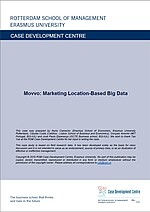
The success of Hi5 – a Dutch foundation aiming to tackle social injustice – has thrown the work-life balance of its own employees out of sync. While employees consider quitting, Hi5 finds itself unable to continue using its brand name due to legal complications. Facing multiple complex problems, the founder has to decide whether to discontinue Hi5 or to make a fresh start.

Inti Games plans to sell its outdoor sports product, Helix, to Australia after successfully selling it on the Dutch home market. Problematic production issues in China have derailed the plan. Inti Games do not wish to lose the Australian market to competitors by delaying product delivery, nor do they wish to damage their reputation by introducing defective products to the market. Is there a viable solution?

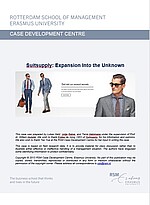
Uber grew rapidly since its inception in 2009 and by 2015 it was providing carpooling services in 300 major cities in 58 countries around the world. As Uber moved forward into new territories, however, it got entangled in many regulatory and legal hassles. The company had to figure out how to sustain its lead in the heavily regulated, controversial, competitive, and ever-changing car-sharing market. Moreover, despite a landslide market share Uber was operating at a loss. How to lower costs and become profitable was another challenge for this young and aggressive company.
